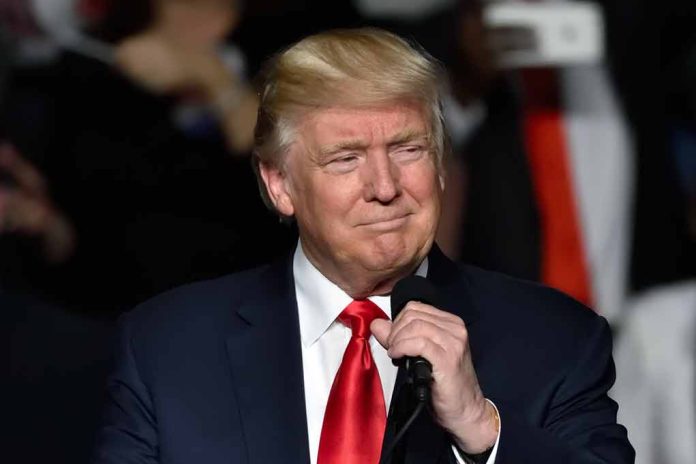
Jim Byron, appointed as a senior adviser at the National Archives, symbolizes a strategic shift within the administration amid substantial leadership changes.
Key Takeaways
- William Bosanko, Deputy Archivist, resigned, effective Tuesday.
- President Trump appointed Jim Byron as a senior adviser at the National Archives.
- Trump bypassed federal law in Shogan’s removal, not informing Congress.
- The Trump administration seeks control over the National Archives.
- Byron’s heritage preservation expertise aligns with Trump’s institutional goals.
Resignation of Deputy Archivist William Bosanko
The resignation of William Bosanko as the acting head of the National Archives marks a pivotal moment in administration changes. Speculation surrounding his departure linked closely with Jim Byron’s appointment as a senior adviser at NARA. Bosanko’s resignation comes after only briefly assuming the role following the firing of former Archivist Colleen Shogan by President Trump. This latest transition points to an underlying shakeup driven by the administration’s broader plans.
Jim Byron, serving as president of the Richard Nixon Foundation, now stands poised to guide NARA operations. Byron, known for his historical expertise, will collaborate closely with Secretary of State Marco Rubio until a new full-time archivist is appointed. Byron brings considerable experience with the archives, as noted by Trump, highlighting Byron’s comprehensive understanding of preserving American history.
Political Influences and Legal Concerns
The Trump administration’s influence extends into archival operations, with Byron’s involvement suggesting a political strategy. Federal mandates stipulate that the chief archivist is appointed based on qualifications, a point of contention considering the administration’s choices. The departure of significant figures like Bosanko underlines the ongoing restructuring championed by Trump. The National Archives face scrutiny for compliance with transparency amidst changes affecting the nation’s documented past.
Trump’s appointment of Marco Rubio as acting archivist, bypassing the deputy’s normal progression, illustrates the administration’s intent to reshape federal agencies. The National Archives, handling sensitive governmental and historical records, stands at the heart of current controversies. The Trump administration’s recent actions underscore overarching visions while sparking debates surrounding record custodianship and policy.
Future Leadership and Historical Integrity
With rumors swelling about the next archivist, figures like Hugh Hewitt have publicly distanced themselves from the position. Byron temporarily leaves his role at the Richard Nixon Foundation, indicating the significance of this transitional period. The changing leadership continues to provoke discussions about the direction of American historical preservation and positions, like the chairman and CEO at the Export-Import Bank.
“I am never going back into government. Ever. I want to stay on air through the end of the story and then enjoy grandkids. Not for me.” – Hugh Hewitt
Byron’s management, aligned with Trump’s agenda, is considered pivotal as discussions on preserving and managing archival records proceed. Maintaining a balance between government oversight and historical integrity remains central to ongoing narratives. The outcome will likely shape the landscape of heritage preservation and the administration’s broader institutional ambitions.
Sources:
- National Archives Head Resigns as Trump Takes Control of Records – Mother Jones
- Trump names Jim Byron to senior archivist role
- Trump Names Jim Byron as Senior Adviser at National Archives













